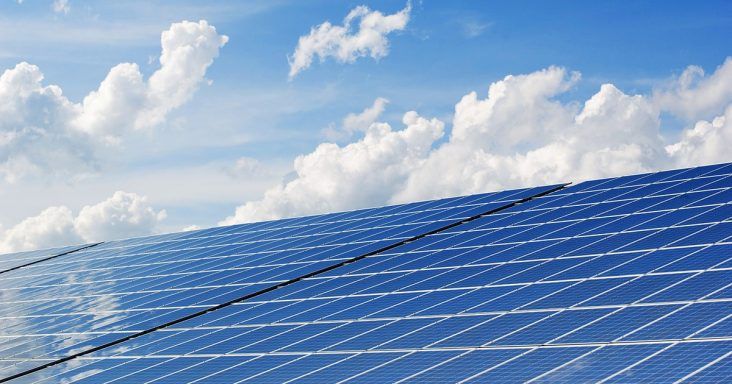Energy officials tout benefits of Inflation Reduction Act; UA solar project announced
by August 28, 2022 10:54 am 1,319 views

A new federal law that’s expected to impact climate change will extend or establish tax incentives for solar arrays, electric vehicles and U.S. manufacturers of solar array components, Arkansas energy officials said.
On Friday (Aug. 26), the Arkansas Advanced Energy Association hosted a virtual event to highlight how the Inflation Reduction Act will affect the energy industry. On Aug. 16, President Joe Biden signed the act into law after Congress approved it along party lines. The Arkansas Congressional Delegation voted against it.
Paul Osborne, partner for HCJ CPAs and Advisors, discussed the act’s $369 billion in climate and energy-related provisions that includes new or extended tax credits. He said a solar production tax credit that had expired in 2006 has been restored under the new law.
Generally, he said a single project cannot take more than one credit. Some of the tax credits start at 6% and can go up to 30%. Regarding energy-efficiency credits, he said they could be earned annually if a new energy-efficiency project is completed each year. He added that a new $1,000 credit is available for vehicle charging equipment. Osborne said vehicle dealers might be able to give instant savings on electric vehicles as opposed to buyers having to wait to file taxes to receive the credit.
Lauren Waldrip, executive director for the Arkansas Advanced Energy Association, noted the up to $7,500 tax rebate for purchasing a new electric vehicle and up to $4,000 rebate for buying a used electric vehicle.
Will Giese, southeast regional director for Solar Energy Industries Association, explained the various tax credits the new law will establish or extend, including for solar arrays both large and small. He also noted the law will provide credits for battery storage systems and give incentives to U.S. manufacturers of components and products related to solar arrays. Giese said the shift to the U.S. manufacturing of solar array components and products will take time as they are largely imported currently. The law is also expected to provide rebates for energy-efficiency projects.
Randy Bynum, partner at Wright Lindsey Jennings, discussed the possible extension of grandfathering for net metering rules for solar array projects in Arkansas. The grandfathering, which is set to expire Dec. 31, allows consumers to receive a 1:1 credit for what their systems produce, and the ratio is locked for 20 years.
The Arkansas Public Service Commission is seeking comments on whether to extend grandfathering. Comments are due by Sept. 22, and a public hearing is set for Oct. 27. Bynum said any commission ruling must be approved by the state legislative council. He would expect this to take place by the end of the year and agreed with Waldrip about the confidence for grandfathering to be extended. Bynum also encouraged residents to submit comments to the commission in support of the grandfathering extension and to attend the public hearing.
According to a Friday (Aug. 26) news release, the University of Arkansas has reached a 25-year agreement with Little Rock-based Entegrity Energy Partners on a renewable energy project that’s expected to save millions of dollars in electricity costs and cut greenhouse gas emissions by 8.8%.
The project includes an off-site solar array that’s expected to offset at least 6.3% of the UA’s electricity needs. The array has a minimum guaranteed production of 8.68 million kilowatt-hours in the first year of operation. Eric Boles, director of the office of sustainability at the UA, said the 5.1-megawatt DC solar array will be built on 25 acres near Nashville, the county seat of Howard County in southwestern Arkansas. The array is expected to be completed in late 2023 or early 2024. Entegrity Energy Partners will build, own and operate it.
Boles said the UA expects no cost increase because of the project. The UA will purchase electricity from the array at a lower rate than it pays Southwestern Electric Power Co. As a result, the UA will reduce its utility expense with each kilowatt-hour the array produces.
Becky Keogh, cabinet secretary for the Arkansas Department of Energy & Environment, said the project will generate an estimated savings of $3.1 million and “is one of the most cost-effective endeavors to be evaluated while requiring no upfront capital.” The agreement is expected to save the UA more than $200,000 in the first year.
“This is part of an ongoing campus strategy to be both fiscally and environmentally conscious with all our projects including our combined heat and power plant, Energy Savings Performance Contracts and U.S. Green Building Council certified facilities,” said Scott Turley associate vice chancellor of facilities.
